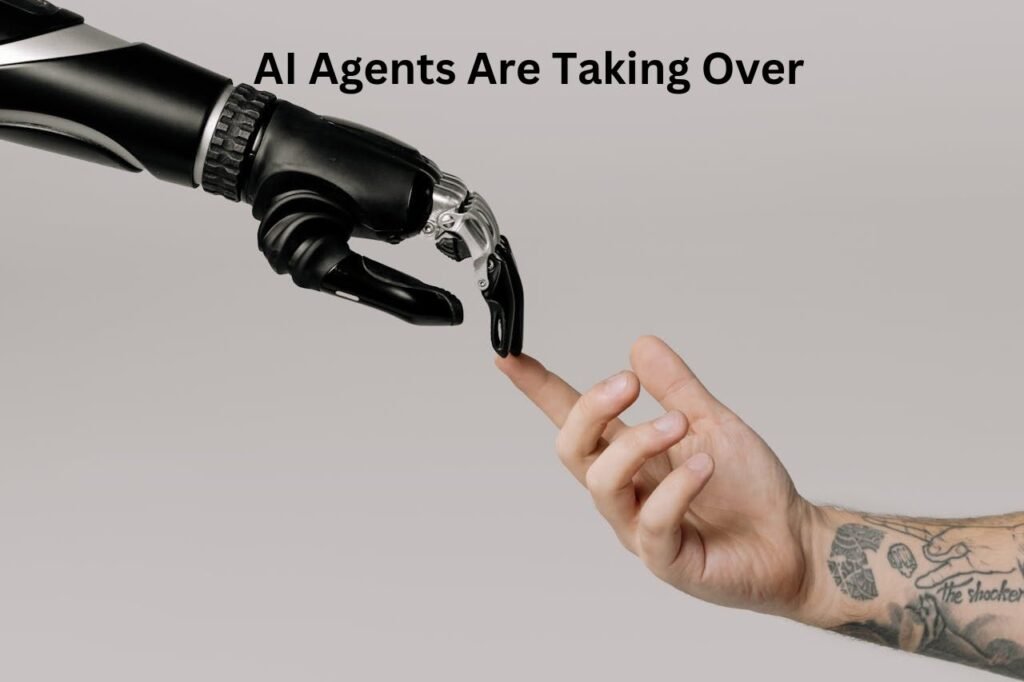AI agents are set to transform our digital lives, seamlessly integrating across devices—from smart glasses to cars. They’ll deliver a consistent experience, adapting technology to fit our needs more intuitively. I first caught a glimpse of this shift at the Mobile World Congress in February, where I saw a demo that replaced all phone apps with a single AI interface. Then, at Qualcomm’s Snapdragon Summit last week, CEO Cristiano Amon shared his vision: “to break the paradigm of the app construct.” Once again, a feeling of change loomed large.
Everything I saw and heard pointed to a major shift—the possible beginning of the end for traditional smartphone apps. The reason? Generative AI.
In his keynote, Amon described how AI could redefine the operating system and app store as we know them. His perspective, echoed by others at Qualcomm and throughout the tech industry, envisions a future where we no longer scroll through home screens to find individual apps. Instead, we’ll interact with our devices primarily through an AI “agent.”
Redefining User Experience: AI as the New Digital Gateway
AI agents are evolving into highly capable digital assistants—think Siri or Alexa, now grown up. This next-gen AI will sit at the core of our digital lives, smoothly connecting across devices like smart glasses, phones, and even cars. It will deliver a consistent experience while adapting to each device’s unique way of interacting with us.
“The AI agent becomes that single entity, the starting point for everything you want to do,” explained Eric Dulkeith from IBM Research.
On our phones, this could mean the end of the traditional home screen. Instead of rows of app icons, we’d have a single portal for all our questions, requests, and ideas. As Qualcomm’s SVP of technology planning Durga Malladi put it during the Snapdragon Summit, “AI is the new UI.”
In a roundtable discussion, Malladi further explained, “We all carry a mental map of file structures, right? But you don’t need to anymore… AI changes how we interact with devices.”
Prognosis: A slow fade expected
The Snapdragon Summit gave Qualcomm a platform to showcase what’s next for Android phones powered by the new Snapdragon 8 Elite chip. This chip, with its advanced neural processing unit (NPU), promises to elevate AI capabilities, including next-gen AI agents.
Early signs of this AI-driven future are already emerging with features like Apple Intelligence and Galaxy AI. As these AI agents evolve, their impact on phone interfaces will likely grow. However, Qualcomm’s vision of a fully app-free experience may still be some time away.
Leo Gebbie, principal analyst at CCS Insight, noted that people aren’t upgrading phones as frequently. Plus, only high-end models next year will have NPUs capable of running complex AI agents. This could delay the shift, potentially years, before we reach a “tipping point” where these AI-ready phones are widespread.
So, we’re looking at a gradual transition rather than a sudden change. Instead of diving into apps first, users will increasingly turn to their AI agent, while apps linger in the background. “They’re still there, but they’re in the background,” said Qualcomm’s Durga Malladi.
Apps in a New Era: The Evolution from Icons to AI Plugins
There may still be a future for apps, though their role is likely to shift. Like past stars, they may fade from the spotlight, playing a smaller role in our daily interactions. Instead, apps could evolve into plugins for AI agents, blending seamlessly into our digital landscape.
Qualcomm is already preparing developers for this transition, according to Senior Vice President Ziad Asghar. With Qualcomm’s new AI Hub, introduced this year at MWC, app makers can integrate generative AI capabilities into their products. The Hub offers a full library of options and a testing ground for experimenting with AI-driven features.
To protect our data and limit risks to sensitive information, Qualcomm is prioritizing on-device AI—enabled by its latest chipsets. This keeps data local rather than relying on the cloud, aligning with Apple’s similar approach to privacy-focused AI. “If we do it on the constellation of devices you carry, the information doesn’t leave you,” Asghar explained. “It stays within your personal network.”
Quite Messy Before it Gets Better
With every terminal diagnosis, a second opinion matters. I asked Geoff Blaber, CEO of analysis firm CCS Insight, if he believes in Qualcomm’s vision.
“I agree it has the potential to change the paradigm,” he said. We’ve long been locked into one narrow mode of interaction with technology, he noted. “You’re constantly jumping in and out, with your data scattered across different silos.”
However, there’s a significant caveat. Blaber pointed out that while the technology is ready, some major players will need convincing before a shift to AI agents can take hold. Companies that currently control our data may be reluctant to open the gates for an AI agent to access it all.
Regulators, too, are increasingly wary of tech giants like Apple and Google, who dominate much of our digital world. They’re pressing for more openness in app stores and operating systems to give people more choice and control. AI agents will likely face similar scrutiny.
Also Read About
Meta Integrates Reuters Content into AI Chatbot
How AI-Driven Startups Are Shaping a New Era of Solo Entrepreneurship
